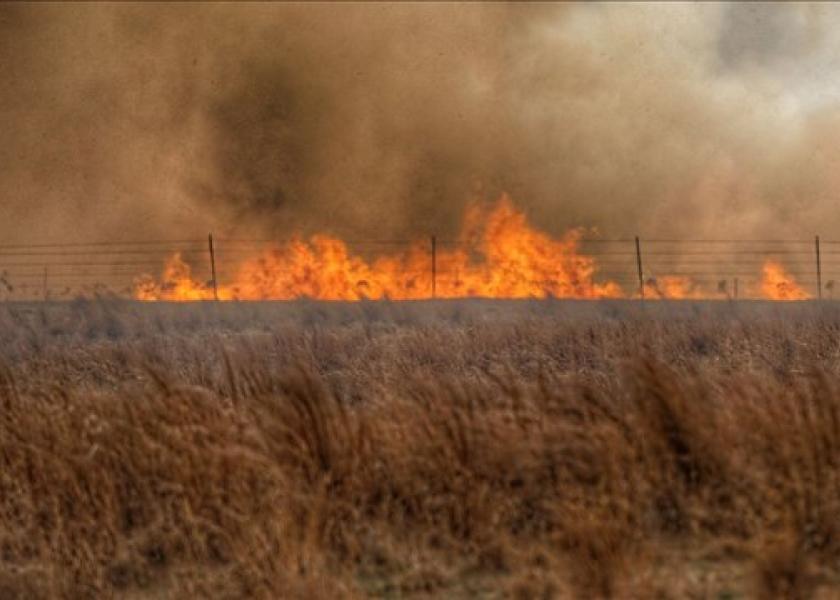Kansas Fires Affect Nebraska Air Quality

Prairie fires in Kansas are contributing to unhealthy air quality in Nebraska.
It’s a spring ritual, the controlled burns on thousands of acres of native prairie grasses in Kansas Flint Hills, but the smoke from those fires combined with south winds leads to poor air quality as far north as Omaha, and even Sioux City, Iowa.
On Wednesday the National Weather Service issued an alert for the Lincoln area, warning that the air quality may be "unhealthy for sensitive groups." The air quality from the Kansas border to Omaha and up to Sioux City was listed in the "moderate" range.
Smoke from prescribed fires may cause air quality issues today. pic.twitter.com/V7T10MuRJe — NWS Omaha (@NWSOmaha) March 27, 2019
Last year, more than one million acres were burned in 17 Kansas counties making up the Flint Hills, down from 2.2 million acres in 2017. Drought conditions and less than ideal weather for prescribed burning last year led to the fewest number of Flint Hills acres burned since 2013.
Ranchers use controlled burns to destroy unwanted vegetation and improve grazing distribution. The Kansas Department of Health and Environment asks those ranchers to become familiar with the voluntary Smoke Management Plan.
That plan leaves flexibility in the hands of the rancher, but puts the responsibility on him or her to make wise decisions. Resources available at www.ksfire.org will help ranchers prevent problematic smoke events in highly populated areas by giving them access to powerful online tools. A map shows the potential smoke impact of burning in a specific area on urban air quality. The smoke modeling tool allows someone to see where smoke will go from a fire in a specific location.







